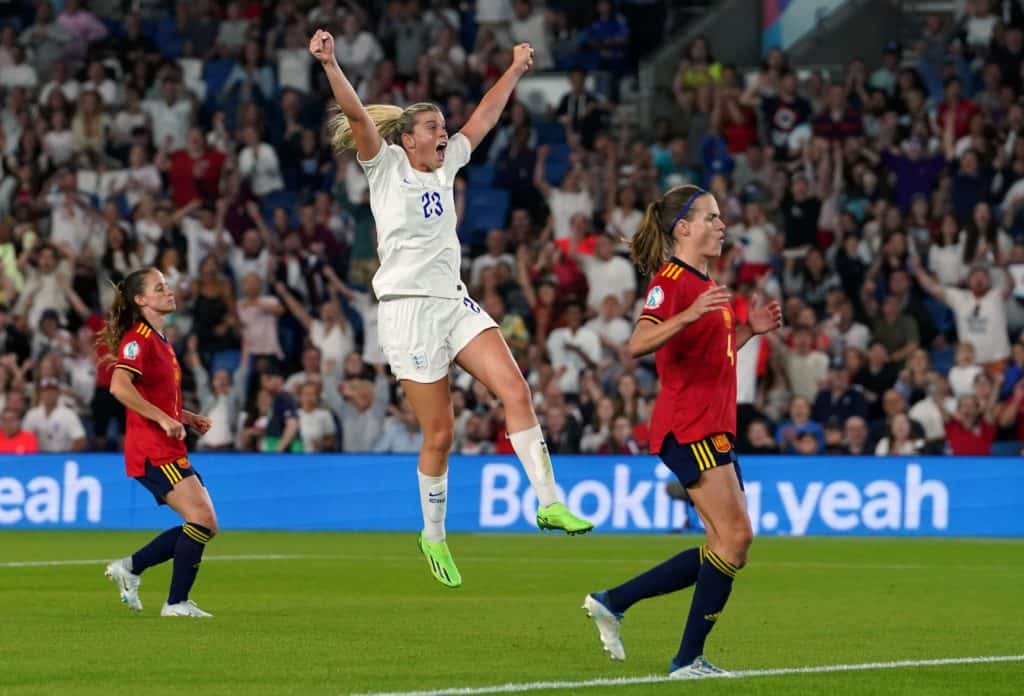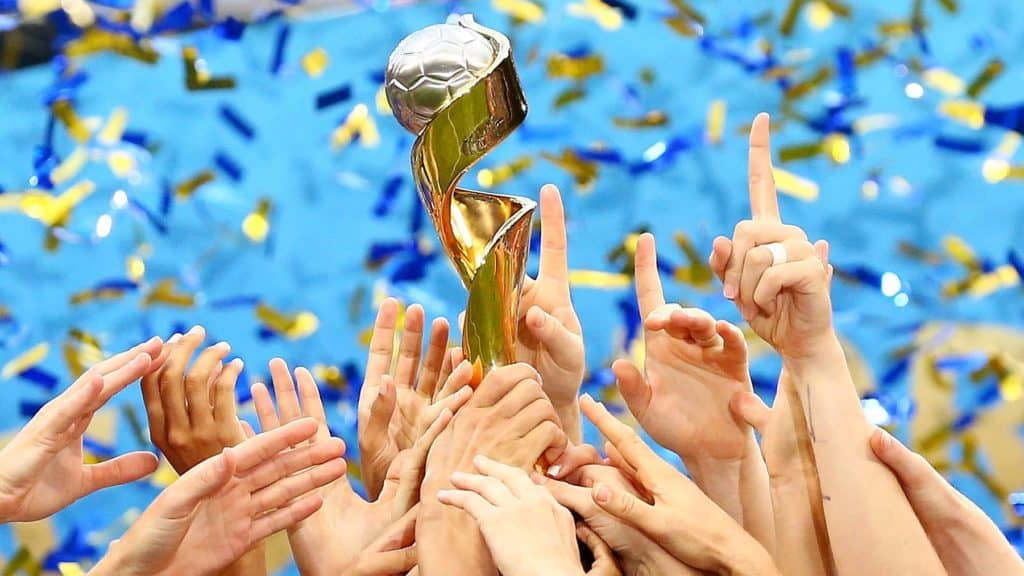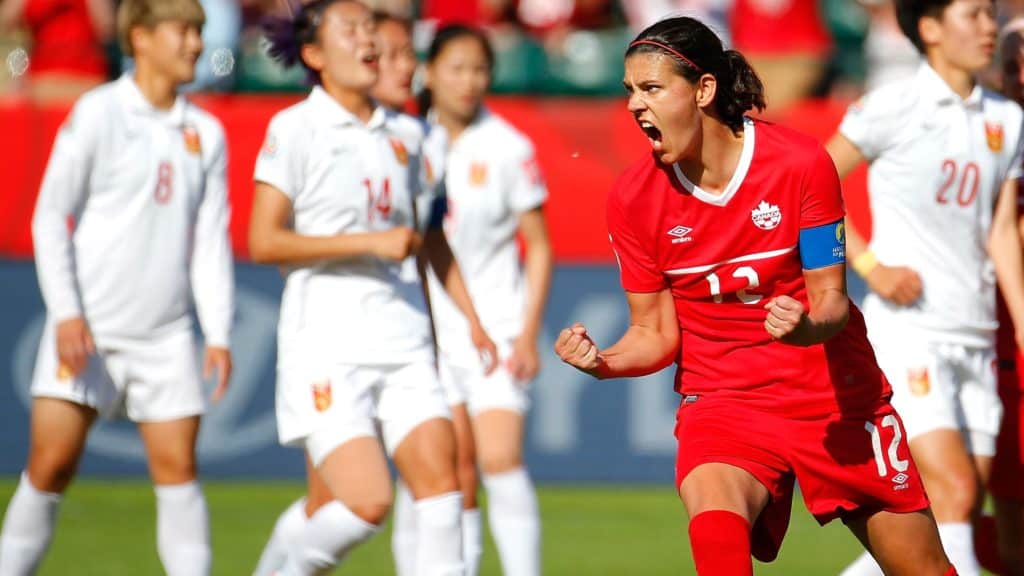- Date: 22 diciembre, 2024
Asthalin Inhaler: Comprehensive Guide for Effective Asthma Management
- 4 min read
- 0 comment
The 2023 Women’s World Cup in Australia presents an excellent opportunity for the country to showcase its beauty and culture to the world. Like other mega-sporting events, the Women’s World Cup is awaiting to generate significant tourism revenue, creating jobs and boosting local economies. Still, hosting such events can also be costly, and governments and private organizations must weigh the benefits and costs before committing to them.
This blog examines the economic impacts of the Women’s World Cup and the opportunities and challenges it presents for tourism and sports marketing. We also explore how brands can leverage the event to enhance their image and connect with consumers who value diversity, inclusion, and equality.

FIFA Women’s World Cup 2023: Footbaill players celebrating a goal in the World Cup
Hosting mega-sporting events like the Women’s World Cup provides a fantastic chance for the host country to boost its tourism industry. In 2023, Australia will host the Women’s World Cup, attracting numerous visitors who will have the opportunity to explore the country’s beauty and create unforgettable experiences. Like the Tokyo Olympics 2020, the Women’s World Cup is awaiting to generate considerable revenue from tourism.
However, it is crucial to carefully consider the economic impacts of hosting such events, as the costs can be high. For example, the 2016 Olympic Games in Rio de Janeiro generated $9.7 billion in economic impact with a total cost of $13.1 billion. The 2021 Tokyo Olympics was looking to generate significant tourism revenue for Japan, with an estimated $2.3 billion in revenue but a cost of $15.4 billion.
Despite the potential benefits, research has shown that the economic impact of hosting mega-sporting events can be exaggerated. Developing countries may face challenges due to the high costs of specialized infrastructure and operating expenses.

FIFA Women’s World Cup 2023: Open image from the Hindmash Stadium in Australia for World
On the other hand, brands can benefit from sponsoring these events and using sports marketing campaigns to boost sales and create a positive brand image. Companies like Coca-Cola, Adidas, and Visa have been official sponsors of the FIFA Women’s World Cup for years, having used the opportunity to market their products and services to a global audience. Such events provide a platform for brands to showcase their commitment to diversity, inclusion, and equality, all valued by some consumers.
In addition to the FIFA Women’s World Cup, several other sporting events offer sponsorship for brands. The Olympics, for instance, is a major global event that attracts millions of viewers from around the world. Brands like McDonald’s, Coca-Cola, and Samsung have been official sponsors of the Olympics for years, and they leverage the event to create marketing campaigns that resonate with audiences. For example, during the 2016 Summer Olympics in Rio, McDonald’s launched a campaign featuring athletes’ childhood photos and highlighting the role of food in their journey to success. Such campaigns help brands connect with consumers on a depth level and build a positive brand image.

FIFA Women’s World Cup 2023: Many football players trying to reach the World Cup Trophy
Another sporting event that offers sponsorship opportunities is the Tour de France. Brands like Skoda, the official car sponsor of the event, use their sponsorship to showcase their vehicles to a global audience. Skoda’s partnership with the Tour de France has helped the brand increase awareness and visibility and reach new customers. Additionally, Skoda has used the event to launch marketing campaigns that promote its commitment to sustainability and eco-friendliness, values that resonate with many consumers today. Usually, sponsoring sporting events could be a clever marketing strategy for brands looking to create a positive brand image and connect with consumers on a deeper level.

FIFA Women’s World Cup 2023: Football player celebrating in the middle of a playgame
In conclusion, while hosting world-class sporting events like the Women’s World Cup can generate tourism revenue and provide marketing opportunities for brands, consideration of the economic impacts is necessary. Governments and private organizations should weigh the benefits and costs of hosting such events and ensure the benefits outweigh the costs. Similarly, brands should evaluate the potential returns on investment before sponsoring such events and ensure that their marketing campaigns align with the values of the event and its audiences. With proper planning and execution, the Women’s World Cup and other mega-sporting events can be a win-win for all stakeholders.

FIFA Women’s World Cup 2023: World Cup 2023 Australia branding Platform and logo

